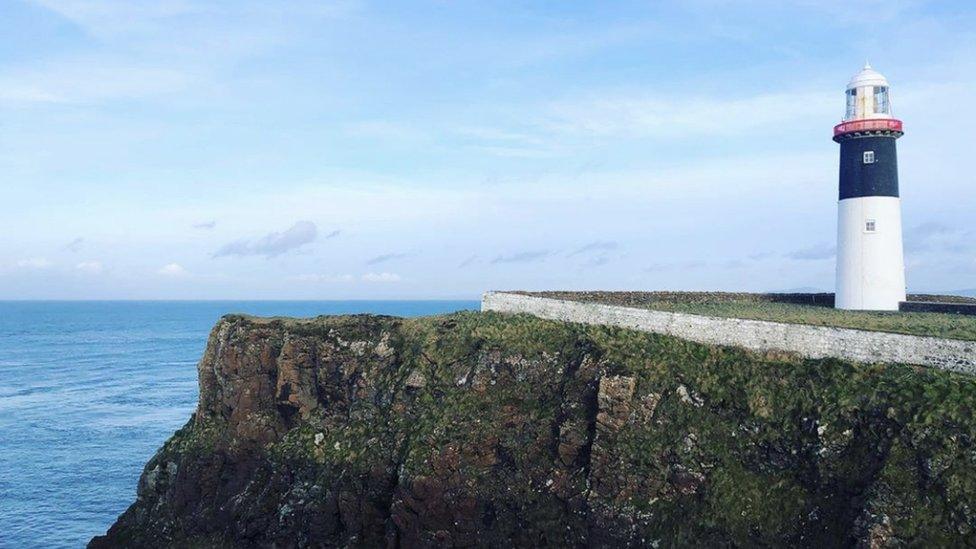Bangor: Project to restore the native oyster population
- Published
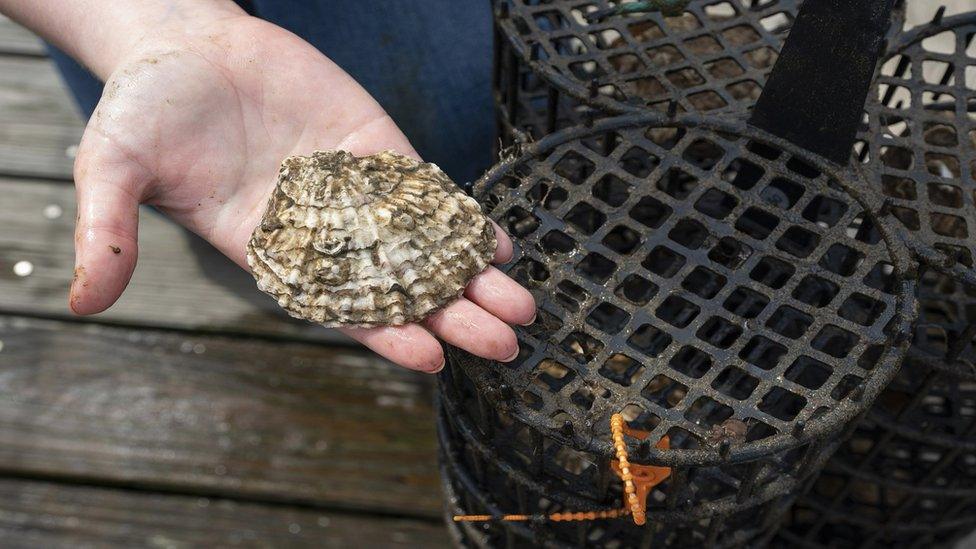
A project is under way to encourage the natural recovery of the shellfish
For more than a century, the native European flat oyster was thought to be extinct in Northern Ireland.
Overfishing in the late 18th century appeared to have wiped it out.
Then two years ago, several were found in Belfast Lough by researchers from Queen's University Belfast and Bangor University in Wales.
Now, Ulster Wildlife has embarked on a project to encourage that natural recovery and restore the local population.
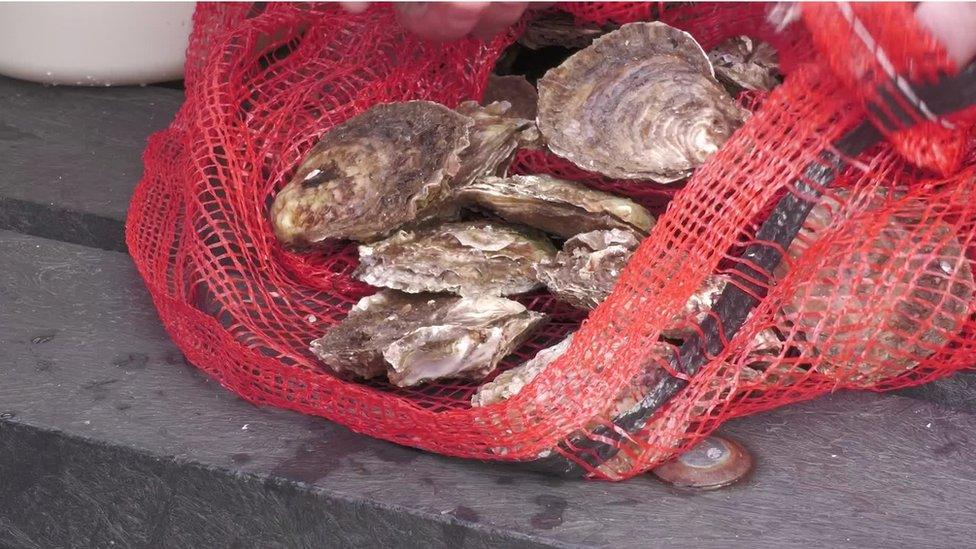
The oysters are checked for signs of health every week
It is being done with the help of native oysters brought over from Scotland.
"We've put 27 oysters into a cage and, in total, we've 24 cages," said Heidi McIlvenny, the charity's marine conservation manager.
"As long as we check them every week to make sure they're healthy and there hasn't been any significant mortalities, they will continue to grow.
"And because we've held them close together, it will encourage them to spawn and release larvae which will be carried out by the tides into the lough and hopefully settle out there with the wild population."
The oysters in the nurseries were screened for disease before being transported from Loch Ryan, near Stranraer in Scotland.
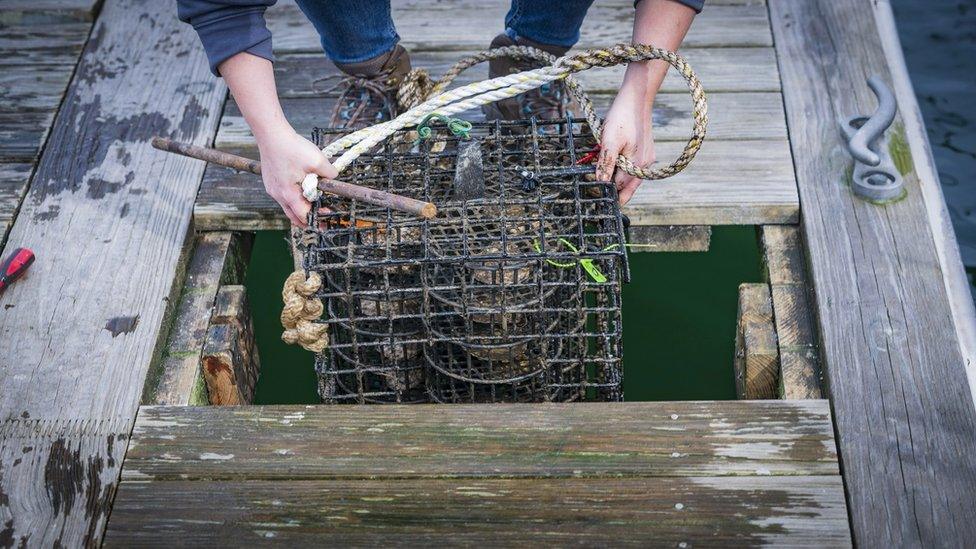
It is the first project in Northern Ireland to involve oyster nursery cages
Planting oyster nursery cages is a method that's been used successfully to restore shellfish populations elsewhere in the UK, where the environment is suitable.
This is the first such project in Northern Ireland.
The 24 cages are suspended in the water beneath several pontoons in Bangor Marina.
When they mature, each oyster will release up to one million larvae, in the hope that just a few will survive to begin the process of creating an oyster reef.
'White edges'
"It's really important that they have suitable substrate to settle on, because they really just like to grow on top of each other," said Heidi.
"So something we need to look at is whether there's enough suitable substrate in Belfast Lough, or is that something that we need to actively address?"
The oysters are already showing signs of healthy growth, with white edges forming round their shells.
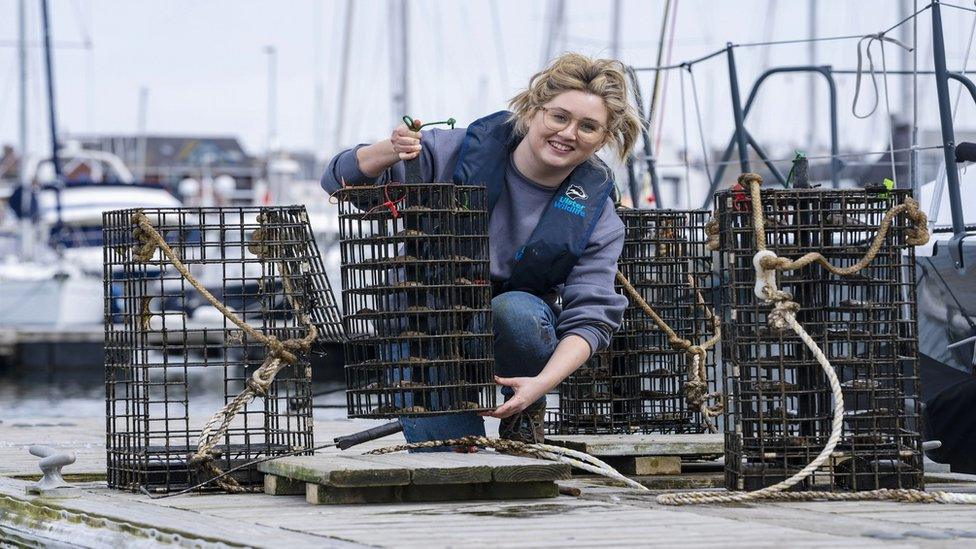
Heidi McIlvenny of Ulster Wildlife shows off the oyster nurseries on the pontoon
Given the right conditions, Heidi's hope is that their presence in the lough will benefit it in a number of ways.
"They're incredible at filtering water. Because they're filter feeders, they're taking all little particles out of the water column and cleaning it, essentially improving water quality and clarity which is an incredible benefit to us.
"They also enhance biodiversity. In the wild, if you have a really healthy population, they start to grow on top of each other and create this reef.
"And that creates little nooks and crannies that so many other marine creatures can find a home in.
"So they're incredible for enhancing the biodiversity, and there's also potential for them to be able to store carbon once they're forming those reefs."
This sort of active conservation is used when a recovering species needs help to become established. And it offers opportunities for the charity to educate people.
"We do hope to be able to expand on this project and have more nurseries in other suitable locations," added Heidi.
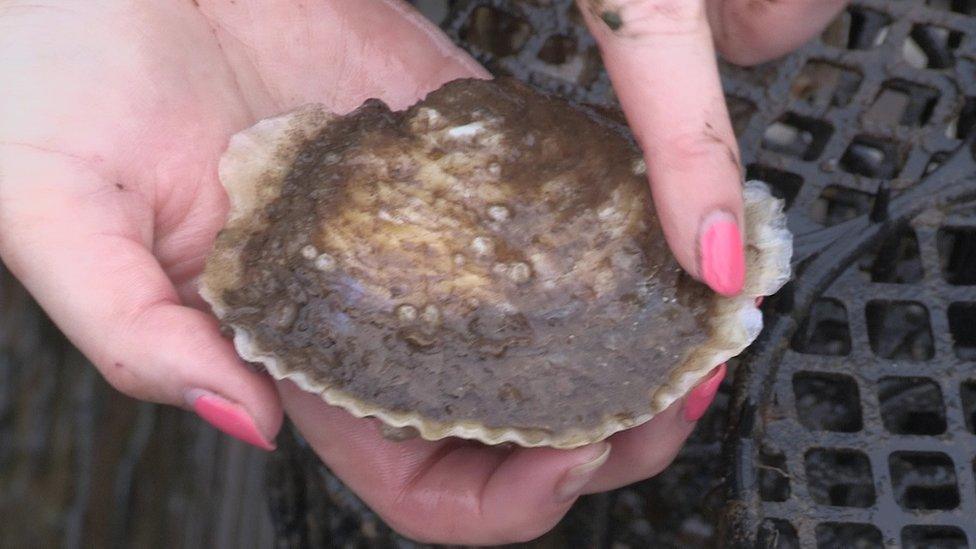
The oysters are already showing signs of healthy growth, with white edges forming round their shells
"But it's also really important for us to bring people down, because we can bring up the cages and show people and they can get involved in doing all the biodiversity surveys and measuring the oysters.
"It's amazing to be able to get people involved in active marine restoration work."
Although commercial fishing destroyed the native oyster population more than a century ago, Heidi is not concerned that that could happen again now.
"There isn't currently a commercial oyster fishery in Belfast Lough.
"But it wouldn't be appropriate for commercial gathering if you tried to sell them, because they wouldn't meet food health and safety standards.
"You might get a bit sick."
Related topics
- Published18 May 2021
